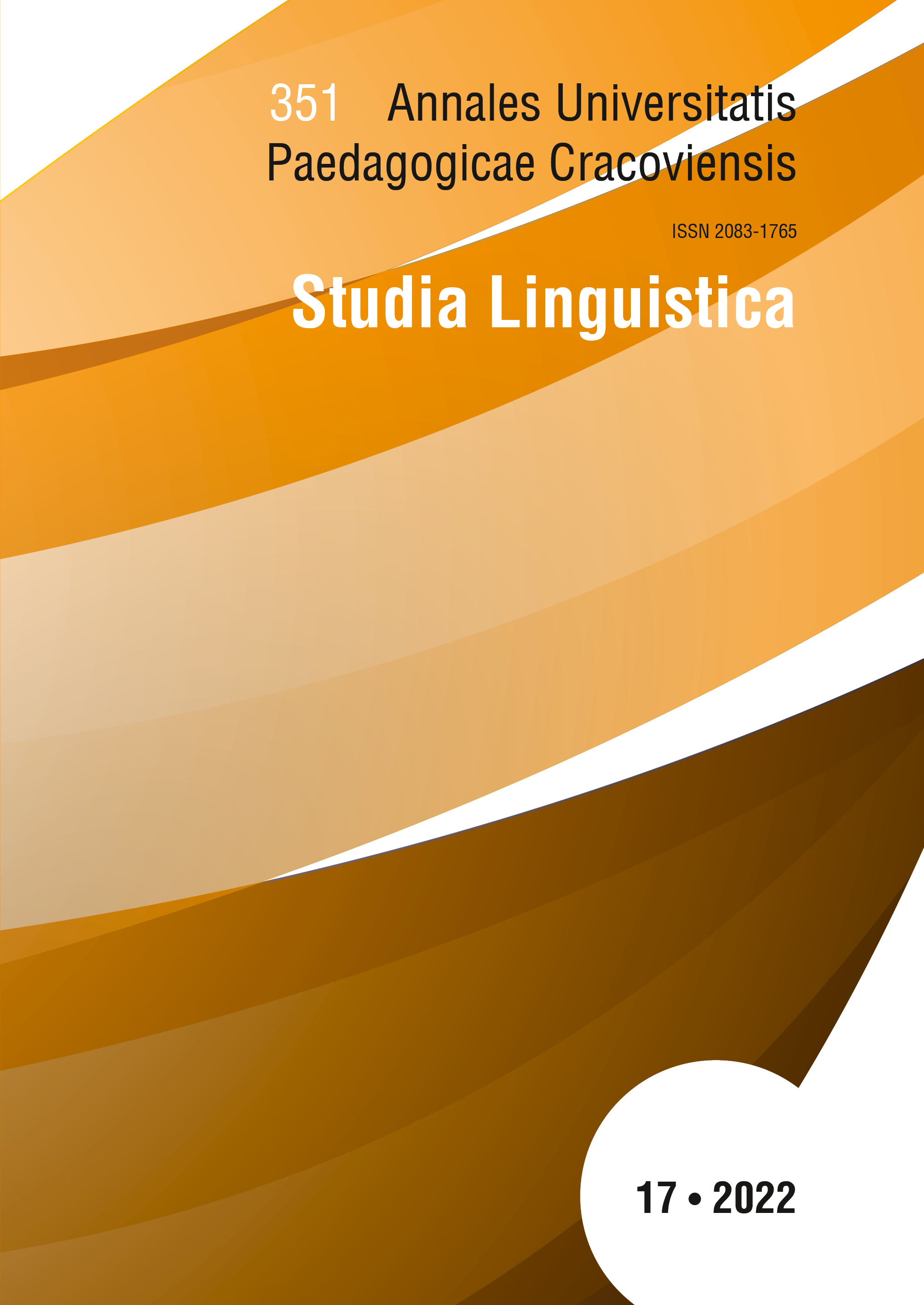Modifications of anthroponyms as a marketing gimmick on the fanpage Lidl Polska
Main Article Content
Abstract
The subject of the article is the deliberate transformation of anthroponyms in advertising messages as a conscious marketing activity. The aim of the work is to present the resource of anthroponyms (names, surnames or pseudonyms), which are the basis of language games, as well as to discuss the methods of modification and the relationship between the anthroponym and the entire advertising message. The research material comes from the Lidl Polska fanpage on Facebook. It has been shown that associations related to authentic characters and heroes of artistic works play an important role. The positive features of the designate are tried to be transferred to the advertised product, often indicating tangential elements in the promotional post. Formal similarity is also important during creating modifications.
Downloads
Article Details

This work is licensed under a Creative Commons Attribution-NonCommercial-NoDerivatives 4.0 International License.
Author, submitting a text to the editorial board of the journal “Annales Universitatis Paedagogicae Cracoviensis. Studia Linguistica", certifies that the content of the article has not been published so far and that the work does not violate in any way the copyright or related rights of other person, as well as other rights of third parties, and that no one's rights to the work (or any part thereof) have been missed. After signing the contract, the property rights to the published materials are transferred to the University of the National Education Commission, Krakow.
“Annales Universitatis Paedagogicae Cracoviensis. Studia Linguistica” is an open access journal, and all its content is made available free of charge to users and institutions under the Creative Commons CC-BY-NC-ND 4.0 license (attribution, non-commercial use, no derivative works). Under this license, the authors agree that their work may be lawfully reused for any purpose, except for commercial purposes, without the prior consent of the author or publisher. Everyone can read, download, copy, print, distribute and process these works, provided that the author's marking and the original publication place are correct. Published texts may not be used to create derivative works (e.g. to translate and publish in another language without the consent of the publisher). This is in line with the BOAI (Budapest Open Access Initiative) definition. "Studia Linguistica" does not charge for submitting or processing articles.
References
Bogdanowicz E., 2017, Konotacje nazw własnych (na materiale publicystyki prasowej), Białystok.
Google Scholar
Burska K., 2012, Kontaminacje jedno- i wielowęzłowe w nagłówkach prasowych i komunikatach reklamowych, „Acta Universitatis Lodziensis. Folia Linguistica”, t. 46, 42–52.
Google Scholar
Kudra B., 2001, Kreatywność leksykalna w dyskursie politycznym polskiej prasy lat osiemdziesiątych i dziewięćdziesiątych, Łódź.
Google Scholar
Łuc I., Bortliczek M., 2011, Język uwikłany w ponowoczesność, Katowice.
Google Scholar
Pałuszyńska E., 2006, Pragmatyczne aspekty użycia nazw własnych w tekstach prasowych, [w:] Onimizacja i apelatywizacja, red. Z. Abramowicz, E. Bogdanowicz, Białystok, s. 165–172.
Google Scholar
Ratajczyk K., 2015, Kontaminacje leksykalne. Struktura – sens – pragmatyka (na materiale języka rosyjskich i polskich mediów), Łódź.
Google Scholar
Rutkowski M., 2003, Bułęsa z Balceronem. O deprecjacji denotatu za pomocą deformacji nazwy, „Poradnik Językowy”, z. 5, 50–58.
Google Scholar
Rutkowski M., Skowronek K., 2020, Onomastyczna analiza dyskursu, Kraków.
Google Scholar
SJP PWN – Słownik języka polskiego PWN, https://sjp.pwn.pl (dostęp 20.02.2022).
Google Scholar
WSJP – Wielki słownik języka polskiego, red. P. Żmigrodzki, https://wsjp.pl/ (dostęp 20.02.2022).
Google Scholar
